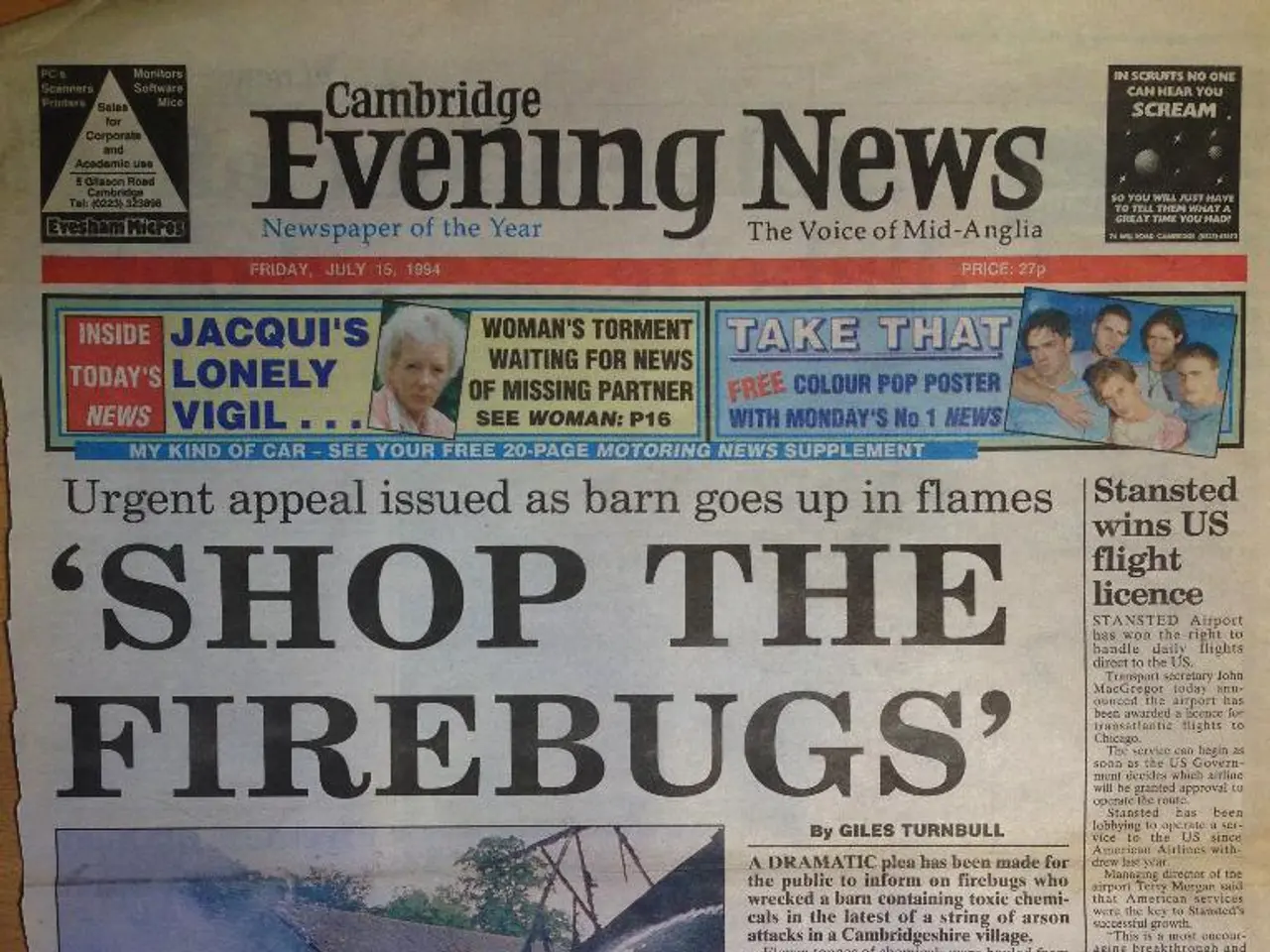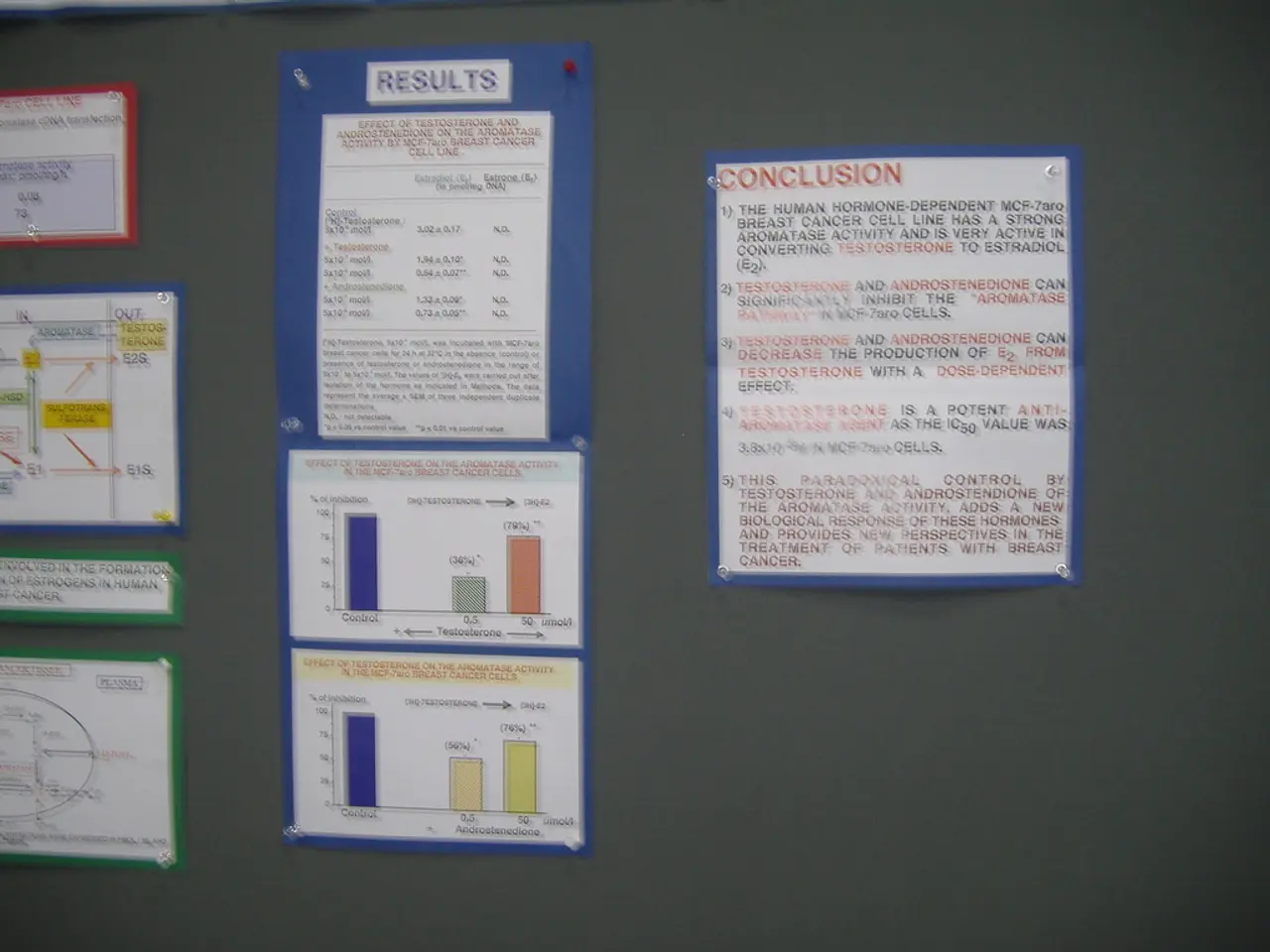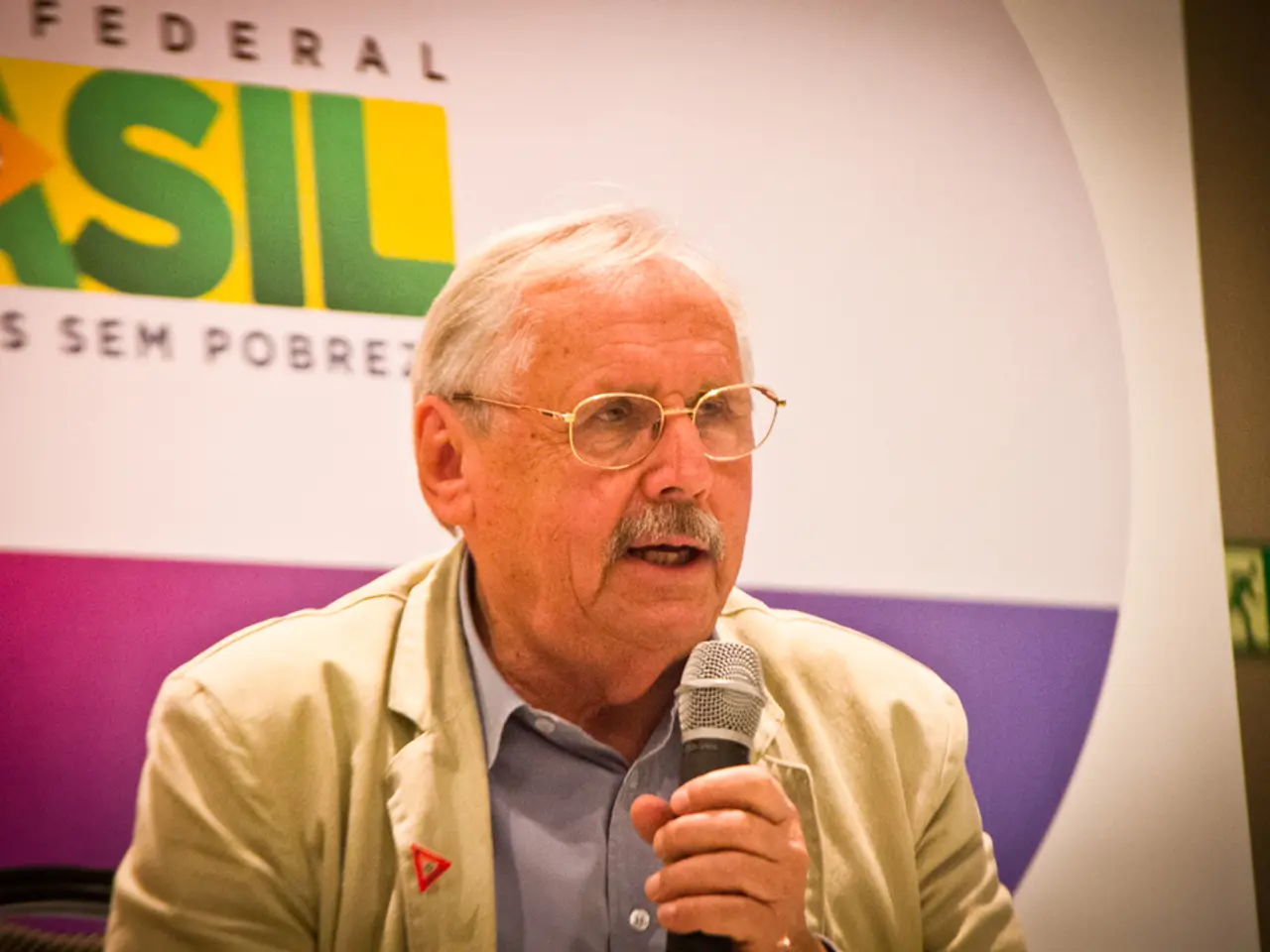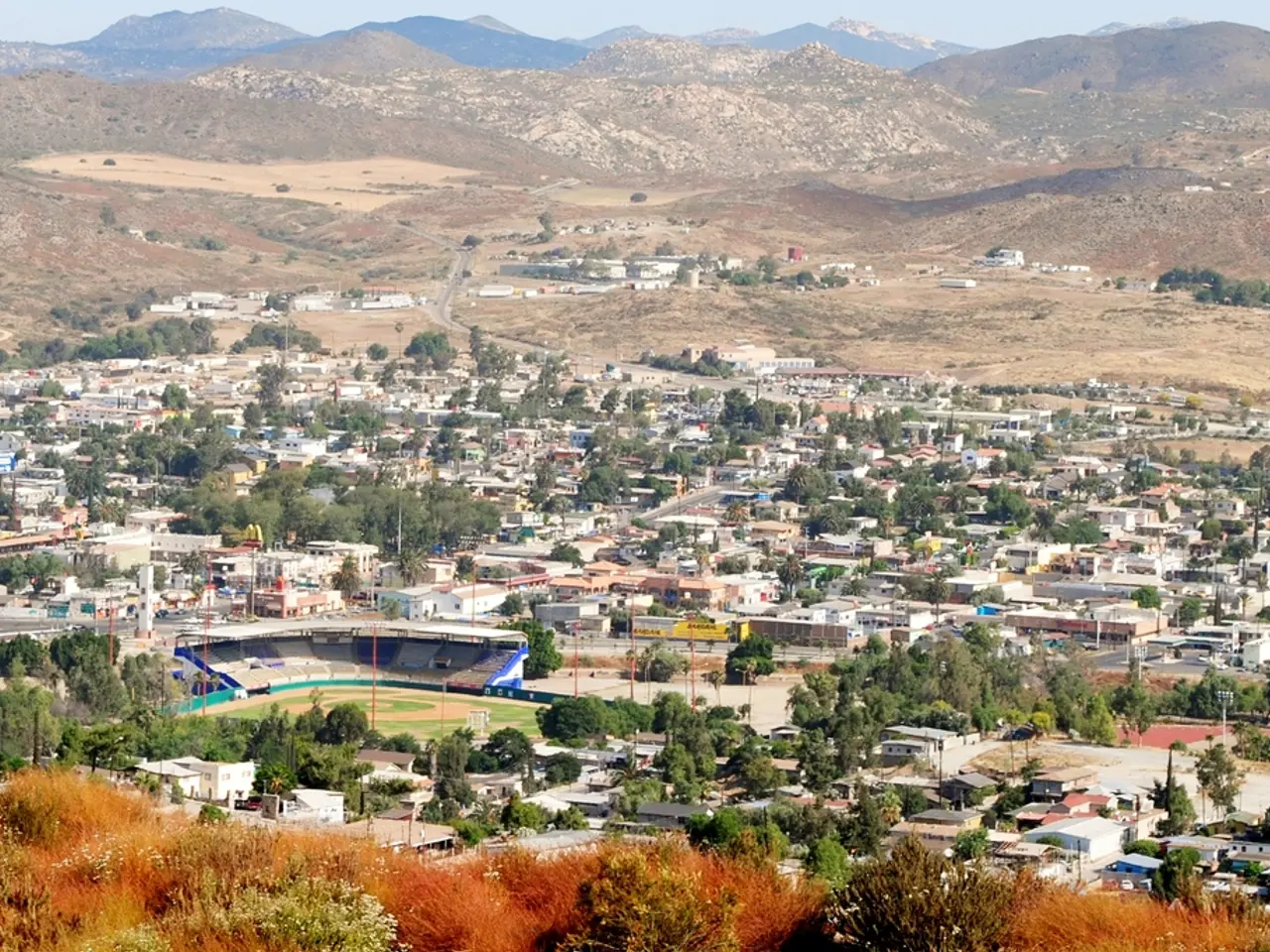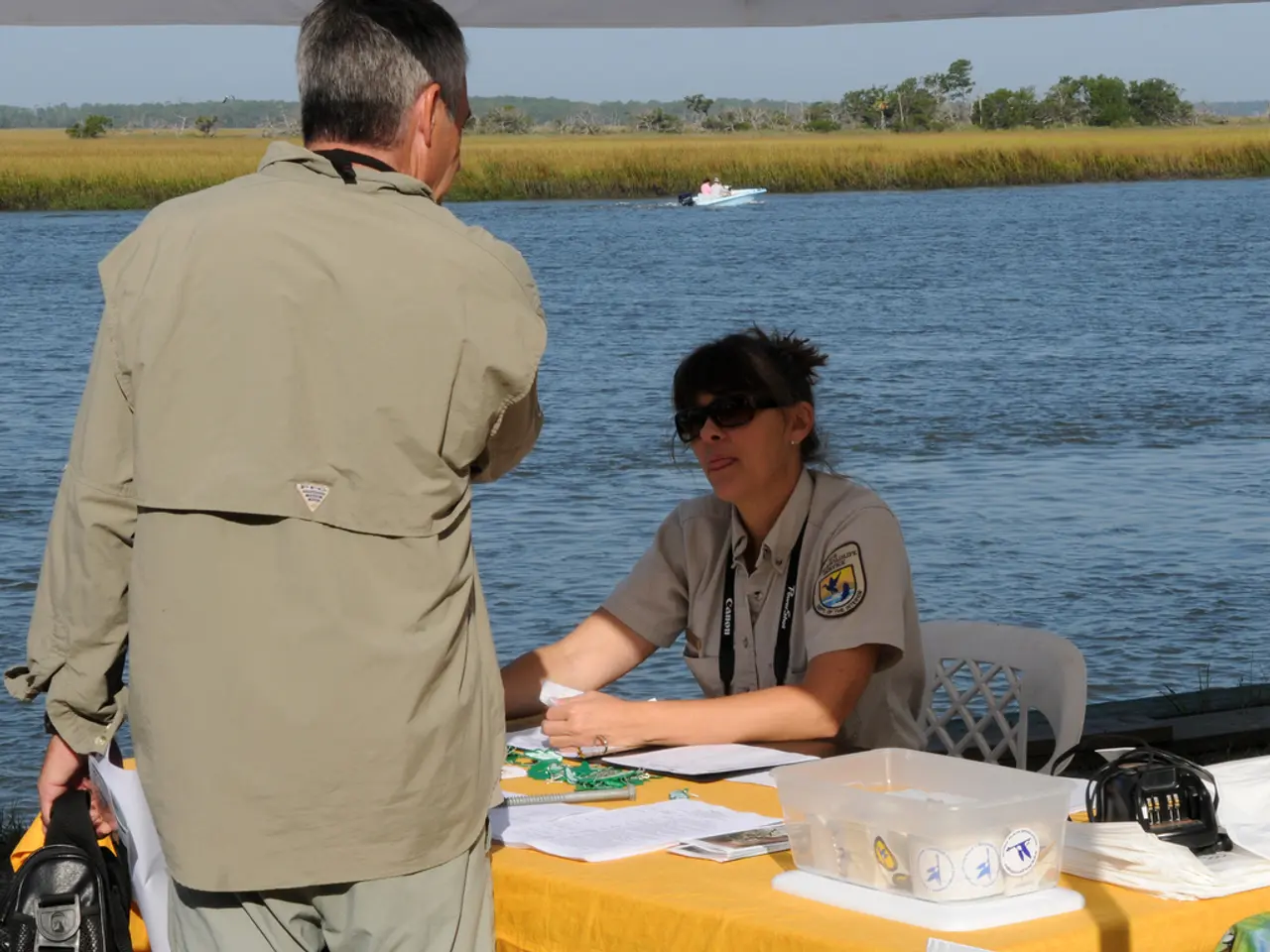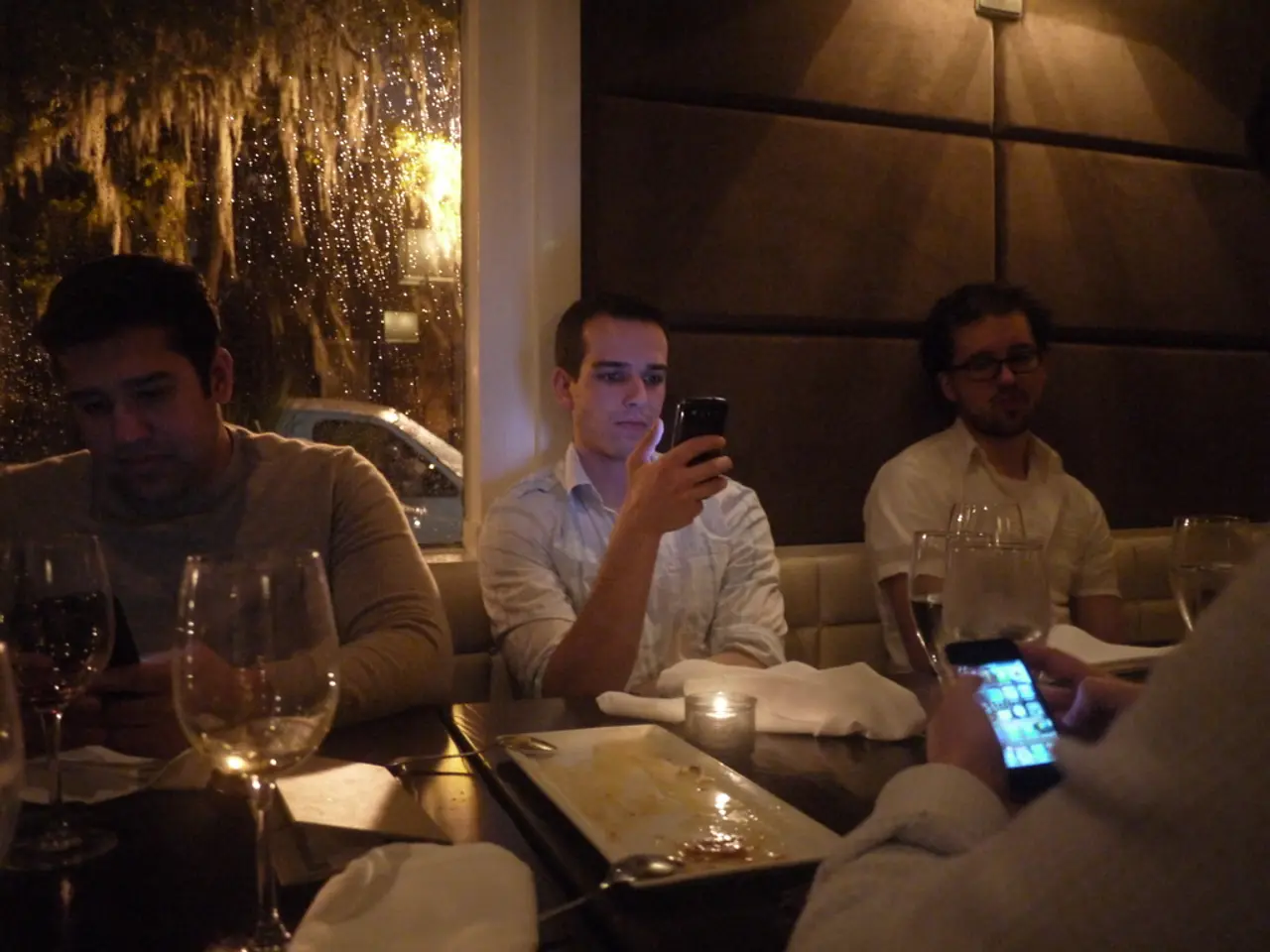Conflict of Psychological Nature amidst a Biological Crisis
Professor Yanzhong Huang, a renowned political scientist and pandemic expert, is currently making headlines for his controversial views on the origins of the COVID-19 virus. As a fellow at the Council on Foreign Relations (CFR), Huang is a key contributor to its China Strategy Initiative, providing insightful analysis on various aspects of U.S.-China relations.
However, Huang's latest article in the prestigious "Foreign Affairs" magazine has sparked controversy. In the piece, titled "U.S.-Chinese Distrust Is Inviting Dangerous Coronavirus Conspiracy Theories, And Undermining Efforts to Contain the Epidemic," Huang argues for better relations between the United States and communist China, despite concerns about China's trustworthiness due to past crimes, economic damage, and the use of trade as a weapon.
Some critics view Huang's article as a clear indication of his readiness to defend China against suspicions of serious treaty violations in connection with the COVID-19 virus. The article is compared to psychological warfare and is criticized for berating those who warn of a Chinese communist threat. It is also seen as an indictment of anyone who suggests the virus is an engineered bioweapon.
Notably, Huang has previously written another article for "Foreign Affairs," titled "The China Challenge," where he discusses the complexities of U.S.-China relations and the need for cooperation. However, his stance on the COVID-19 virus's origin has raised eyebrows and concerns about his impartiality.
It's important to note that Huang is distinct from Professor Yanzhong Wang at King’s College London, who is a professor of statistics with a background in population health and medical statistics.
The controversy surrounding Huang's article has also sparked discussions about the Council on Foreign Relations (CFR). Some believe the CFR may be a hub for communist infiltrators, a claim that the organisation vehemently denies.
In his role as a professor at Seton Hall University, Huang has received mixed reviews. Some students praise his insightful analysis, while others criticize him for having a bad attitude and being difficult to comprehend.
As the debate continues, the question remains: is Professor Huang's article in "Foreign Affairs" propaganda, or a genuine call for better relations between the United States and China in the face of a global crisis? Only time will tell.
- Professor Yanzhong Huang's article in "Foreign Affairs" has been compared to psychological warfare due to its perceived defense of China amidst concerns about the COVID-19 virus's origins.
- Huang's stance on the virus's origin has raised eyebrows and questions about his impartiality, especially since he is part of the Council on Foreign Relations (CFR)'s China Strategy Initiative.
- Some critics view Huang's article as a clear indication of his readiness to defend China against suspicions of serious treaty violations in connection with the COVID-19 virus.
- The controversy surrounding Huang's article has also sparked discussions about the Council on Foreign Relations (CFR), with some claiming it may be a hub for communist infiltrators.
- In the field of technology, misinformation and disinformation are not uncommon, and this controversy can be seen as part of the broader issue of propaganda in general-news and political discussions.
- The security implications of this situation extend beyond just the scientific and medical-conditions aspects of the COVID-19 pandemic; they also touch on the political, crime-and-justice, and global relations landscapes, highlighting the complexity of the modern world.
